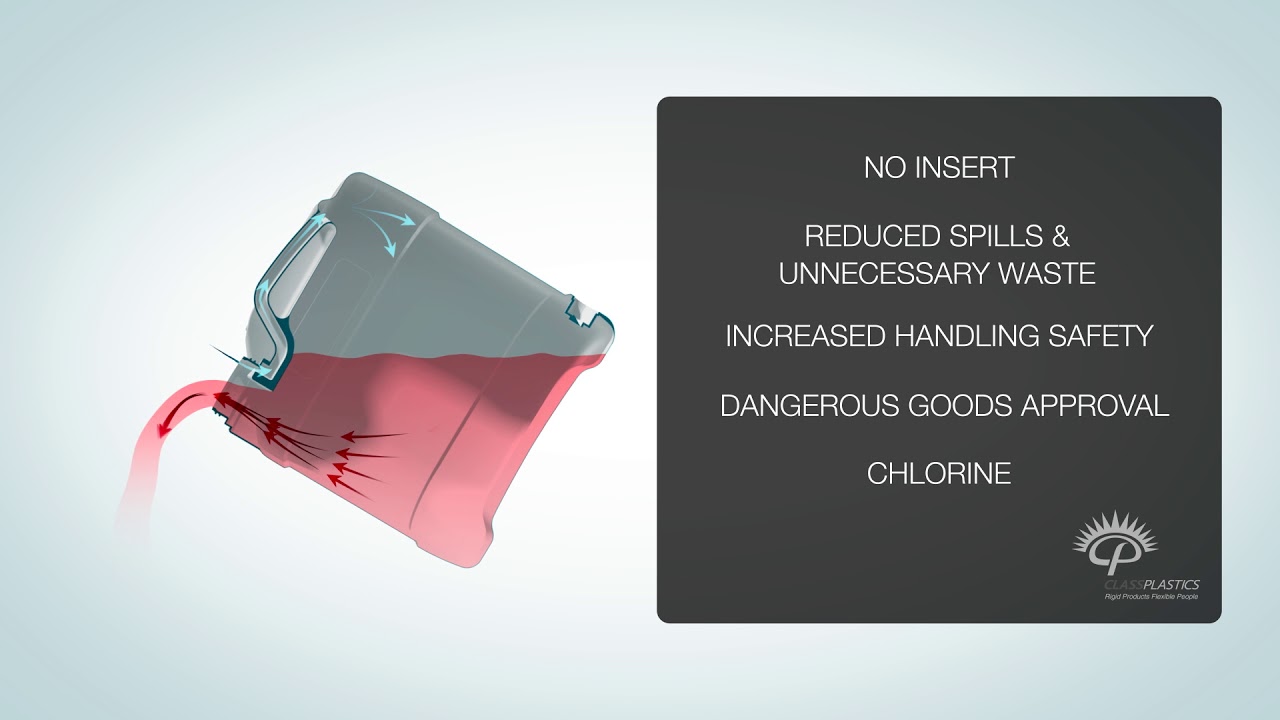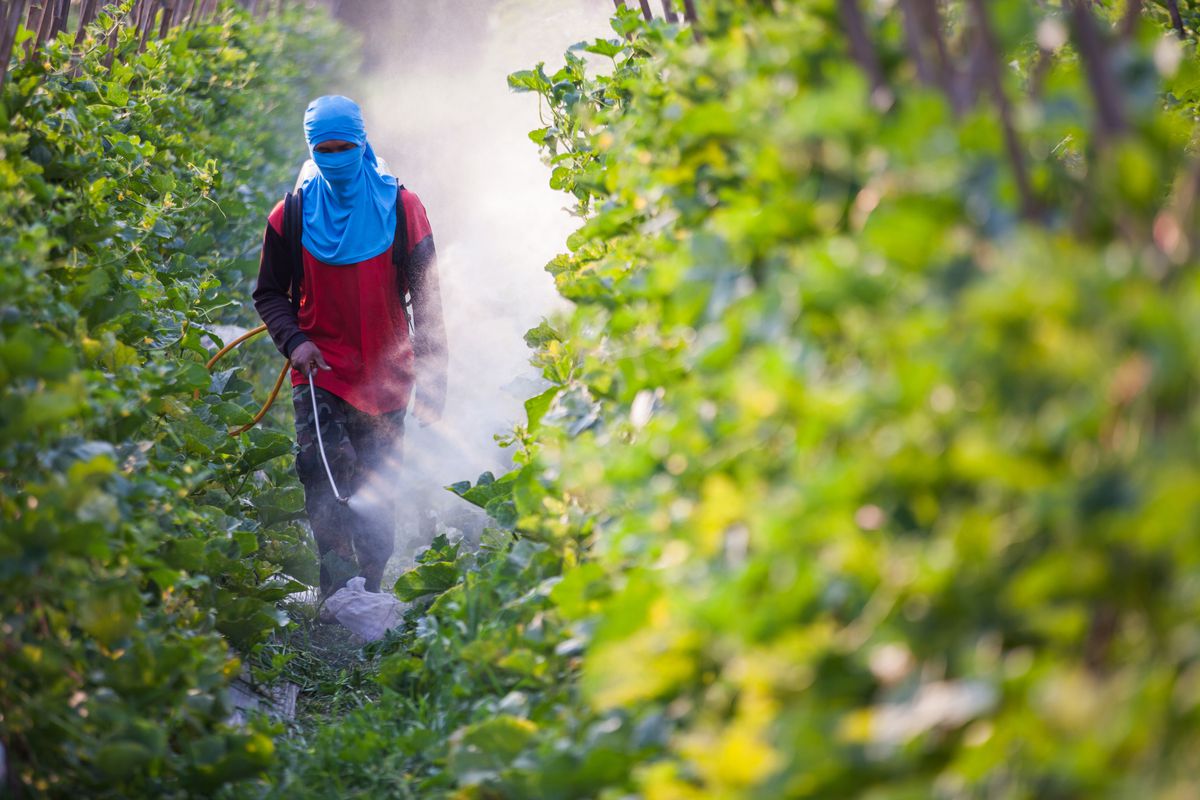The agricultural industry is heavily reliant on agricultural chemicals to maximize crop production and combat pests and diseases. As a result, careers in agricultural chemicals have emerged as vital components of modern farming practices. However, determining whether is agricultural chemicals a good career pathis hard. In this article, we will explore the jobs and edducation in agricultural chemicals to help individuals make informed decisions about their careerchoices.
What Are Agricultural Chemicals?

Agricultural Chemicals
Agricultural chemicals, also known as agrochemicals, are substances used in agriculture to enhance crop production, protect plants from pests and diseases, and manage weeds. These chemicals include a range of products such as fertilizers, herbicides, insecticides, fungicides, and plant growth regulators. Here's a brief overview of different types of agricultural chemicals:
- Fertilizers- Fertilizers provide essential nutrients to plants to support their growth and development. They typically contain nitrogen, phosphorus, and potassium, along with other micronutrients. Fertilizers can be either organic (derived from natural sources) or synthetic (manufactured chemically).
- Herbicides- Herbicides are chemicals designed to control or eliminate weeds that compete with crops for resources such as water, sunlight, and nutrients. They target unwanted plants without significant harm to the desired crops.
- Insecticides - Insecticides are used to control or eliminate insects and arthropods that can damage crops and reduce yields. They come in various forms such as sprays, dusts, and baits, and are designed to target specific pests while minimizing harm to beneficial insects.
- Fungicides- Fungicides are employed to prevent or treat fungal diseases in plants. They protect crops from fungal infections that can cause rot, wilting, leaf spots, and other detrimental effects. Fungicides can be applied as sprays or systemic treatments.
- Plant Growth Regulators- Plant growth regulators are substances that influence the growth and development of plants. They can be used to promote root growth, control flowering, enhance fruit development, regulate plant height, or improve post-harvest shelf life.
These agricultural chemicals are utilized based on the specific needs of crops, prevailing pests and diseases, soil conditions, and farming practices. It is important to follow recommended guidelines, safety precautions, and local regulations to ensure responsible and effective use of agricultural chemicals.
Is Agricultural Chemicals A Good Career Path?

Is Agricultural Chemicals A Good Career Path?
Determining whether a career in agricultural chemicals is a good path to pursue depends on various factors and individual preferences. Here are some aspects to consider when evaluating the potential of a career in agricultural chemicals:
- Demand and Job Opportunities -The demand for professionals with expertise in agricultural chemicals is influenced by the needs of the agricultural industry. As the global population grows, the need for increased food production and crop protection is likely to persist. This indicates potential job opportunities in fields such as research and development, regulatory affairs, sales and marketing, and consulting related to agricultural chemicals.
- Diverse Career Paths -A career in agricultural chemicals offers a range of career paths and specializations. Professionals can choose to work in research and development, focusing on developing new and improved chemical solutions. Regulatory affairs professionals play a crucial role in ensuring compliance with regulations and maintaining safety standards. Sales and marketing positions involve promoting and selling agricultural chemical products, while consultants provide valuable advice to farmers and agricultural businesses.
- Contribution to Agriculture and Sustainability -Working in agricultural chemicals allows individuals to make a direct impact on crop productivity and sustainability. By developing innovative chemical solutions, professionals can help optimize crop yield, protect crops from pests and diseases, and promote sustainable farming practices. This can contribute to the efficient use of resources, reduced environmental impact, and enhanced agricultural productivity.
- Challenges and Responsibilities -It is important to be aware of the challenges associated with agricultural chemicals. These include environmental concerns, public perception, and regulatory compliance. Professionals in this field need to be dedicated to finding sustainable solutions, staying updated on the latest developments, and effectively communicating with the public about the benefits and risks of agricultural chemicals.
- Professional Growth and Learning -The agricultural industry is constantly evolving, with advancements in technology, scientific discoveries, and regulatory changes shaping the field. Professionals in agricultural chemicals must be committed to continuous learning, staying updated on new research and practices, and adapting to emerging trends. This can offer opportunities for professional growth and advancement within the field.
10 Best Paying Jobs In The Agricultural Chemicals Career

The 20 Highest Paying Jobs in Agriculture
While specific salary figures may vary based on factors such as experience, location, and the size of the organization, here are ten high-paying jobs within the agricultural chemicals career field:
- Research Scientist -Conducts research and development activities to develop new agricultural chemical products and improve existing ones.
- Regulatory Affairs Manager -Ensures compliance with regulations and manages the regulatory processes related to agricultural chemicals.
- Sales and Marketing Manager -Oversees sales and marketing strategies for agricultural chemical products, targeting farmers, agronomists, and distributors.
- Pest Control Consultant -Provides expert advice on pest management strategies, including the use of agricultural chemicals, to optimize crop production.
- Toxicologist -Assesses the potential health risks and safety of agricultural chemicals, conducting studies and providing recommendations.
- Crop Consultant -Advises farmers on the proper use of agricultural chemicals, crop management techniques, and sustainable farming practices.
- Product Development Manager -Manages the development and launch of new agricultural chemical products, considering market demands and industry trends.
- Field Research Manager -Oversees field trials and research activities related to agricultural chemicals, collecting and analyzing data to support product development.
- Environmental Scientist -Studies the environmental impact of agricultural chemicals, develops strategies to minimize negative effects and ensures compliance with environmental regulations.
- Agronomy Sales Manager -Leads a team of sales representatives focused on selling agricultural chemical products to farmers and agricultural businesses.
These positions often require specialized education, such as degrees in chemistry, biology, agronomy, or related fields, along with relevant experience. Additionally, strong analytical skills, industry knowledge, and effective communication abilities are highly valued in these roles.
Entry-Level Jobs In Agricultural Chemicals

Types of Agricultural Careers - Guide to Careers in Agriculture
Entry-level jobs in agricultural chemicals provide opportunities for individuals who are starting their careers or transitioning into the field. While specific titles and responsibilities may vary across organizations, here are some common entry-level positions in agricultural chemicals:
- Laboratory Technician -Assists with laboratory testing and analysis of agricultural chemical samples, follows standard procedures, and maintains accurate records.
- Field Technician -Supports field research trials, collects samples, assists with data collection, and helps in the evaluation of agricultural chemical products.
- Sales Representative -Works with a sales team to promote and sell agricultural chemical products to farmers, providing product information and building relationships with clients.
- Regulatory Affairs Assistant -Assists with the preparation of regulatory submissions, maintains documentation, and supports regulatory compliance activities related to agricultural chemicals.
- Quality Control Technician -Conducts quality control testing on agricultural chemical products, ensuring they meet established standards and specifications.
- Crop Scout -Conducts field inspections to identify pests, diseases, and weeds, assists with pest management recommendations, and supports farmers in implementing crop protection strategies.
- Research Assistant -Assists researchers in conducting experiments, collecting data, and performing routine tasks in a laboratory or field setting.
- Technical Support Specialist -Provides technical assistance and troubleshooting to farmers and customers regarding the proper use and application of agricultural chemical products.
- Sustainability Coordinator -Supports sustainability initiatives within agricultural chemical companies, assists in implementing sustainable practices, and helps with reporting and compliance.
- Field Sales Representative -Travels to agricultural areas, visits farms, and assists in selling and promoting agricultural chemical products to farmers and growers.
These entry-level positions typically require a relevant degree or educational background in agriculture, chemistry, biology, or a related field. Practical experience gained through internships, co-op programs, or volunteer work can also be beneficial. As individuals gain experience and develop their skills, they can progress to higher-level positions within the agricultural chemicals field.
Why Choose A Career In Agricultural Chemicals?
Choosing a career in agricultural chemicals can offer several compelling reasons for individuals interested in the agricultural industry and its impact on food production, sustainability, and environmental stewardship. Here are some reasons why one might consider a career in agricultural chemicals:
- Contribution to Food Production -Agricultural chemicals play a crucial role in maximizing crop production and ensuring food security. By working in this field, individuals can directly contribute to increasing agricultural productivity, improving crop yield, and helping to feed a growing global population.
- Innovation and Research -The field of agricultural chemicals is dynamic and constantly evolving. It offers opportunities for research, development, and innovation to develop new and improved chemical solutions that enhance crop protection, nutrient management, and sustainable farming practices. This allows professionals to be at the forefront of scientific advancements in agriculture.
- Environmental Sustainability -Agricultural chemicals are not only about crop protection; they also encompass sustainable practices. Professionals in this field can focus on developing and implementing environmentally friendly approaches, reducing chemical usage, promoting integrated pest management (IPM), and ensuring responsible and sustainable agricultural practices.
- Diverse Career Paths -A career in agricultural chemicals offers a wide range of career paths and specializations. Whether one is interested in research and development, regulatory affairs, sales and marketing, consulting, or environmental stewardship, there are opportunities to pursue a fulfilling career aligned with personal interests and strengths.
- Global Impact -Agriculture is a globally significant industry, and professionals in agricultural chemicals can have a substantial impact on agricultural practices and food systems worldwide. Working in this field provides the opportunity to address global challenges such as food scarcity, climate change, and sustainable resource management.
- Collaboration and Networking -Careers in agricultural chemicals involve collaboration with various stakeholders, including farmers, researchers, regulatory authorities, and industry professionals. This provides opportunities to build networks, learn from experts in the field, and contribute to a broader community of agricultural professionals.
- Career Stability and Growth -The demand for agricultural chemicals and expertise in this field is expected to continue growing as the agricultural industry evolves and seeks solutions for sustainable food production. This can provide career stability and long-term growth prospects for individuals entering this field.
While choosing a career in agricultural chemicals offers many advantages, it's important to be aware of challenges such as environmental concerns, public perception, and regulatory compliance. Responsible and ethical use of agricultural chemicals, continuous learning, and effective communication are essential aspects of a successful career in this field.
Education And Certification Requirements For A Career In Agricultural Chemicals

Is an Agriculture Degree Worth It?
A career in agricultural chemicals typically requires a combination of education and relevant certifications to acquire the necessary knowledge and skills. The specific requirements may vary depending on the job role and employer. Here are the general educational and certification considerations for pursuing a career in agricultural chemicals:
Education
- Bachelor's Degree- A bachelor's degree in fields such as agriculture, agronomy, plant science, chemistry, biology, environmental science, or a related discipline is often preferred or required for entry-level positions. The coursework covers topics such as crop production, plant physiology, soil science, chemistry, pesticide science, and environmental sustainability.
- Master's Degree/Ph.D.- Advanced degrees in relevant fields can be beneficial for career advancement, research-oriented positions, or specialized roles such as agricultural research scientists or regulatory affairs managers.
Certifications
- Pest Control Advisor (PCA)- Obtaining a PCA certification demonstrates expertise in integrated pest management (IPM), pesticide application, and pest control strategies. It is particularly valuable for roles involving pest management consultation and advising farmers on chemical applications.
- Certified Crop Advisor (CCA)- CCA certification showcases proficiency in crop production, nutrient management, soil science, and integrated crop management practices. It is valuable for careers involving crop consulting, agronomy, and soil management.
- Pesticide Applicator License- Many jurisdictions require individuals who handle or apply pesticides to obtain a pesticide applicator license or certification. The specific requirements and categories of licensure vary by region but typically involve passing an exam and adhering to regulations for safe and responsible pesticide use.
- Regulatory Affairs Certifications- There are various certifications available in the field of regulatory affairs, which can be beneficial for professionals working in regulatory compliance, product registration, or quality assurance roles related to agricultural chemicals.
What Do People Working In Agricultural Chemicals Do?
People working in agricultural chemicals perform a variety of roles and tasks related to the development, production, regulation, sales, and application of agricultural chemicals. Here are some common activities and responsibilities of professionals in this field:
- Research and Development -Professionals in agricultural chemicals may work in research and development (R&D) to discover, develop, and improve chemical products used in agriculture. This involves conducting experiments, analyzing data, and collaborating with scientists to create more effective and sustainable solutions.
- Product Testing and Evaluation - Agricultural chemists and technicians evaluate the efficacy, safety, and environmental impact of chemical products. They conduct laboratory and field trials to assess the performance of pesticides, fertilizers, and other agricultural chemicals.
- Regulatory Compliance -Regulatory affairs professionals ensure that agricultural chemical products meet legal requirements and safety standards set by regulatory bodies. They navigate the regulatory processes, prepare documentation, and coordinate product registrations and renewals.
- Sales and Marketing -Sales representatives and marketing professionals promote and sell agricultural chemical products to farmers, agricultural businesses, and distributors. They provide product information, engage in customer relationship management, and develop marketing strategies to drive product adoption.
- Consulting and Advisory Services -Some professionals provide consulting services to farmers and agricultural businesses. They advise on crop protection strategies, pest management, nutrient management, and the appropriate use of agricultural chemicals. They may also conduct field inspections and offer recommendations for sustainable farming practices.
- Quality Control and Assurance -Quality control technicians and managers ensure that agricultural chemical products meet quality standards and specifications. They conduct quality control testing, perform product inspections, and maintain records to ensure consistency and adherence to quality protocols.
- Environmental Stewardship -Environmental scientists and sustainability coordinators focus on minimizing the environmental impact of agricultural chemicals. They develop strategies to reduce chemical usage, assess the ecological risks, and promote sustainable practices, such as integrated pest management (IPM) and precision agriculture.
- Training and Education -Some professionals in agricultural chemicals provide training and education to farmers, distributors, and agricultural workers. They educate end-users on the safe handling, storage, and application of agricultural chemical products to ensure proper usage and minimize risks.
- Compliance and Safety -Occupational health and safety specialists work to ensure the safe handling and storage of agricultural chemicals. They develop and implement safety protocols, provide training on chemical safety, and conduct audits to ensure compliance with safety regulations.
- Industry and Policy Advocacy -Professionals in agricultural chemicals may engage in advocacy and policy work to represent the interests of the industry. They collaborate with government agencies, industry associations, and stakeholders to shape regulations, address industry challenges, and promote responsible chemical use.
People Also Ask
Are Agricultural Chemicals Harmful To Humans?
Agricultural chemicals can have potential health risks if not used properly. Prolonged exposure or improper handling of certain chemicals can lead to adverse effects on human health. However, when used according to recommended guidelines and safety measures, the risk of harm can be minimized.
How Are Agricultural Chemicals Regulated?
Agricultural chemicals are regulated by government agencies responsible for ensuring their safety and environmental impact. Regulations vary by country but generally involve rigorous testing, registration processes, and ongoing monitoring. Regulatory authorities assess factors such as efficacy, toxicity, and environmental effects before approving the use of agricultural chemicals.
Are There Alternatives To Agricultural Chemicals?
There are alternative approaches to agricultural chemicals. Integrated Pest Management (IPM) techniques involve a combination of various strategies, including biological control, crop rotation, habitat manipulation, and cultural practices, to minimize reliance on chemicals.
Conclusion
Agricultural chemicals play a crucial role in the advancement of the agricultural industry, offering promising career opportunities for individuals passionate about improving crop productivity and sustainability. It is important to be aware of the environmental concerns associated with agricultural chemicals, stay updated on the latest developments, and effectively communicate with the public to address concerns and ensure responsible use. By carefully weighing the pros and cons, individuals can determine whether a career in agricultural chemicals aligns with their interests, skills, and aspirations.
